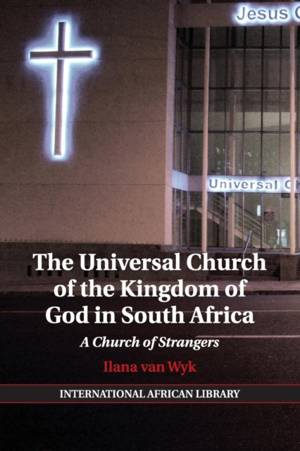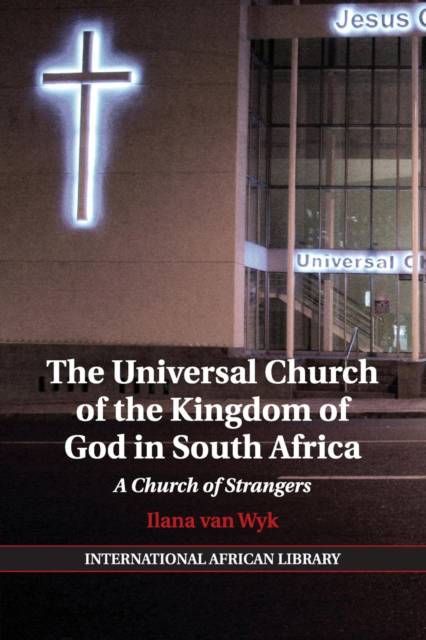
Je cadeautjes zeker op tijd in huis hebben voor de feestdagen? Kom langs in onze winkels en vind het perfecte geschenk!
- Afhalen na 1 uur in een winkel met voorraad
- Gratis thuislevering in België vanaf € 30
- Ruim aanbod met 7 miljoen producten
Je cadeautjes zeker op tijd in huis hebben voor de feestdagen? Kom langs in onze winkels en vind het perfecte geschenk!
- Afhalen na 1 uur in een winkel met voorraad
- Gratis thuislevering in België vanaf € 30
- Ruim aanbod met 7 miljoen producten
Zoeken
€ 64,95
+ 129 punten
Uitvoering
Omschrijving
The Universal Church of the Kingdom of God (UCKG), a church of Brazilian origin, has been enormously successful in establishing branches and attracting followers in post-apartheid South Africa. Unlike other Pentecostal Charismatic Churches (PCC), the UCKG insists that relationships with God be devoid of "emotions", that socialisation between members be kept to a minimum and that charity and fellowship are "useless" in materialising God's blessings. Instead, the UCKG urges members to sacrifice large sums of money to God for delivering wealth, health, social harmony and happiness. While outsiders condemn these rituals as empty or manipulative, this book shows that they are locally meaningful, demand sincerity to work, have limits and are informed by local ideas about human bodies, agency and ontological balance. As an ethnography of people rather than of institutions, this book offers fresh insights into the mass PCC movement that has swept across Africa since the early 1990s.
Specificaties
Betrokkenen
- Auteur(s):
- Uitgeverij:
Inhoud
- Aantal bladzijden:
- 306
- Taal:
- Engels
- Reeks:
- Reeksnummer:
- nr. 47
Eigenschappen
- Productcode (EAN):
- 9781107686250
- Verschijningsdatum:
- 28/04/2016
- Uitvoering:
- Paperback
- Formaat:
- Trade paperback (VS)
- Afmetingen:
- 152 mm x 229 mm
- Gewicht:
- 449 g

Alleen bij Standaard Boekhandel
+ 129 punten op je klantenkaart van Standaard Boekhandel
Beoordelingen
We publiceren alleen reviews die voldoen aan de voorwaarden voor reviews. Bekijk onze voorwaarden voor reviews.









